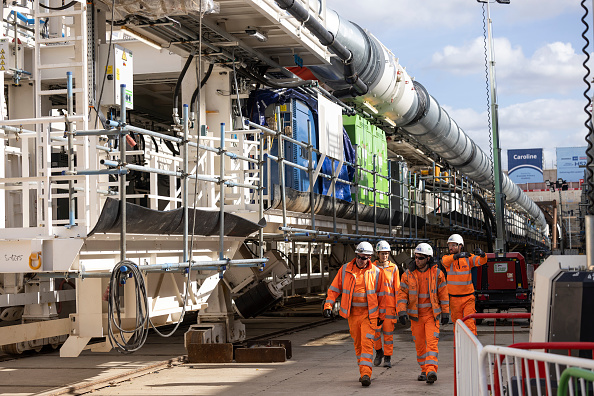‘True cost’ of cutting HS2 short must be investigated, MPs told

Senior rail industry officials have called for an investigation into the “true costs” of cancelling the northern leg of HS2 ahead of a parliamentary hearing on the project.
The High Speed Rail Group (HSRG), which represents a number of rail companies, filed a submission to MPs this morning warning that the taxpayer will be forced to foot a hefty and unnecessary bill for scrapping a huge chunk of HS2.
Senior officials at the Department for Transport and HS2 Limited are set for a grilling from the Public Accounts Committee on the status of the project today.
Cancelling Phase 2a, the section between the West Midlands and Crewe, represents “very questionable value for money,” the HSRG’s submission said, and the decision must be heavily scrutinised.
According to the group’s analysis, taxpayers could face a £100m loss due to the “fire sale” of land bought for HS2 north of Birmingham.
Other sections of the line, including the Euston terminus in Central London, are facing years of delay, with private investment needed to finish the job.
The HSRG are calling for a reconsideration of the decision to scrap Phase 2a, adding that no more land purchased for the project should be sold until a “full consultation” takes place with local authorities, businesses and rail firms.
Services must also reach London Euston station “as a matter of priority if the benefits of the remaining parts of the project are to be realised,” the group said.
The group added: “The cancellation of HS2 Phase 2 would not only jeopardise vital rail connectivity but also curb the economic potential of towns, cities and regions poised to benefit from this infrastructure.
“Our research shows that if the land slated for HS2 Birmingham – Crewe were to be sold at current market prices, the loss of value to the taxpayer will be as much as £100m. Worse still, we are certain the true cost of delivering an alternative to HS2 has not been fully investigated.
“We urge the committee to delve into these true costs to ensure informed decisions that safeguard both taxpayers’ interests and the North’s transport connectivity,” the spokesperson added.
A DfT spokesperson described the characterisation as “simply wrong, and we do not recognise these figures.”
“We are currently developing the programme for selling land no longer needed for HS2 and will set out more details in due course. We will ensure our approach provides value for the taxpayer and will fully engage with the communities who are affected throughout this process.”